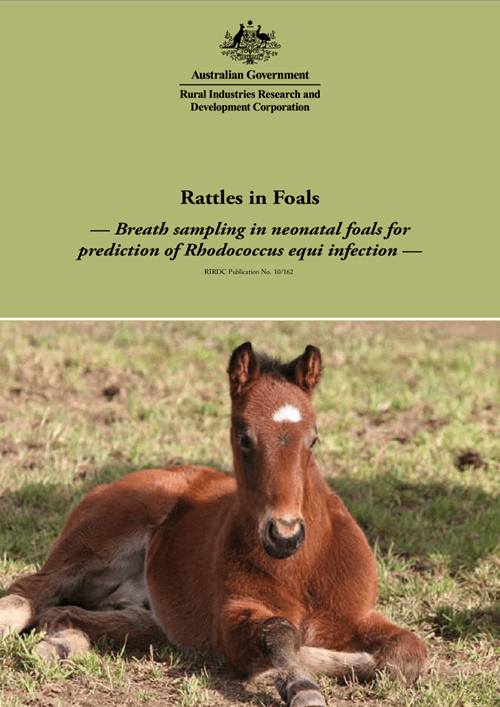Project overview: A strategy to increase demand for retired Thoroughbreds in Australia
The Thoroughbred industry in Australia is the second largest in the world, both in terms of breeding and the number of races held. The industry...
 THOROUGHBRED HORSES
THOROUGHBRED HORSES 
43 pages
Published: 9 Sep 2010
Author(s): Catherine Chicken, Gary Muscatello, Glenn F Browning, Angela P Begg , James R Gilkerson
Download report PDF
DownloadPurchase a hard copy - AUD $45.00
Pneumonia caused by Rhodococcus equi (R. equi) in foals, commonly referred to as “rattles,” is of major importance around the world in all countries with a significant horse breeding industry. R. equi is a soil-borne bacterium that is able to survive and replicate in soil contaminated with horse faeces and therefore can proliferate in the soil environment of horse breeding establishments. Not all strains of R. equi are capable of causing disease in foals; rather there is a subset of virulent organisms that differ genetically from the non-pathogenic strains that cause disease.
This study extended previous RIRDC funded epidemiological work using a portable air sampling device to collect samples of exhaled breath from foals.
This work adds to our increasing level of knowledge of this important horse pathogen and allows horse owners and horse farm management to develop management strategies to reduce the level of loss on their property caused by R. equi pneumonia.